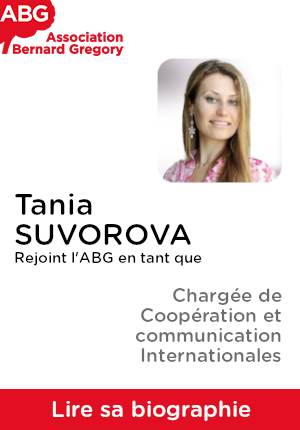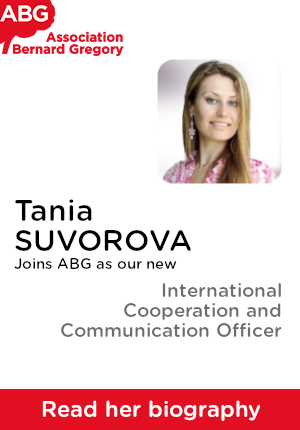Alignement de representation avec les humains des modeles vision-langage-action pour les taches hierarchiques // Human representation alignement of vision language action models for hierarchical tasks
|
ABG-134079
ADUM-67806 |
Sujet de Thèse | |
| 29/10/2025 | Contrat doctoral |
École nationale supérieure de techniques avancées
Palaiseau - Ile-de-France - France
Alignement de representation avec les humains des modeles vision-langage-action pour les taches hierarchiques // Human representation alignement of vision language action models for hierarchical tasks
modele vision language action, modele de fondation, apprentissage robotique, apprentissage par imitation, apprentissage par reinforcement
vision language action model, foundation model, robot learning, imitation learning, reinforcement learning
vision language action model, foundation model, robot learning, imitation learning, reinforcement learning
Description du sujet
Alors que les avancées des modeles vision langage impactent la robotique car ils sont exploités pour la planification des taches compositionnelles, ils butent contre le manque d'incarnation des actions physiques des LLMs et de leur mauvais capacité pour la planification long-terme afin d'accomplir des taches compositionnelles. Une autre limitation des modeles de fondation est le manque en robotique de bases de données massives pour l'apprentissage d'action incarnée multi-taches. De plus, plus la complexité des taches augmente, plus la taille des bases de données doit augmenter, exponentiellement. En fait, en apprentissage non-fini, l'ensemble des taches et les changement d'environnement, par définition, rendent impossible l'apprentissage d'une base de donnée pré-définie, aussi grande soit-elle.
Dans cette thèse theorique, en adoptant la perspective de l'apprentissage continu, nous proposons de nous attaquer à la limitation des bases de données prédéfinies avec les mécanismes d'apprentissage bio-inspirés :
- l'apprentissage par renforcement par motivation intrinsèque pour collecter des données de manière efficace
- l'apprentissage hiérarchique pour mettre à profit l'apprentissage par transfert à partir de taches simples pour construire des taches de plus en plus complexes
- l'apprentissage par imitation actif pour exploiter l'expertise humaine, en particulier les compositions haut niveau de taches.
Cette thèse a pour but d'apporter les bases theoriques pour aligner aux representations des humains, des modeles de fondation robotique multi-modales adaptatif de tache en incorporant la proprioception, la vision, le langage et l'apprentissage auto-supervisé, permettant aux robots de généraliser des taches primitives pour améliorer en taches compositionnelles, pour l'apprentissage non-fini dans in environnement incarné.
------------------------------------------------------------------------------------------------------------------------------------------------------------------------
------------------------------------------------------------------------------------------------------------------------------------------------------------------------
While robots are expected to carry out complex tasks in the embodied [Varela et al. 1991] open-ended
environment [Doncieux et al. 2018], the state of the art in robotics can not yet generalise from
primitive tasks to solve tasks higher in complexity, and results show only success for a limited number
of tasks.
While the breakthrough of Vision Language Models (VLMs) impact robotics as they are harvested to
give task planning for compositional tasks, they are challenged with the lack of grounding of physical
actions of LLMs and the poor capabilities for long-term planning for long-horizon tasks. Another
limitation of foundation models is the lack in robotics of a large dataset for multi-task embodied action learning. Moreover, as the complexity of tasks grows, the need for very large datasets grows.
Actually, in open-ended learning, the set of tasks and the environment changes by definition make it
impossible to learn from a pre-defined dataset, however large it may be.
In this theoretical thesis, adopting the continual learning perspective, we propose to tackle the limitation of
predefined datasets with bio-inspired learning mechanisms :
• intrinsically-motivated reinforcement learning to collect efficiently data and learn from scarce data
• hierarchical learning to leverage transfer learning from simple tasks to build more complex
tasks
• active imitation learning to harness human expertise, especially for high-level task composition.
This thesis aims to study the theoretical bases to align with human representation, multi-modal, task-adaptive robotic foundation models by incorporating
proprioception, vision, language and self-supervised learning, allowing robots to generalize from primitive tasks to upscale to complex tasks, for open-ended learning in an embodied
environment.
------------------------------------------------------------------------------------------------------------------------------------------------------------------------
------------------------------------------------------------------------------------------------------------------------------------------------------------------------
Début de la thèse : 01/10/2025
Dans cette thèse theorique, en adoptant la perspective de l'apprentissage continu, nous proposons de nous attaquer à la limitation des bases de données prédéfinies avec les mécanismes d'apprentissage bio-inspirés :
- l'apprentissage par renforcement par motivation intrinsèque pour collecter des données de manière efficace
- l'apprentissage hiérarchique pour mettre à profit l'apprentissage par transfert à partir de taches simples pour construire des taches de plus en plus complexes
- l'apprentissage par imitation actif pour exploiter l'expertise humaine, en particulier les compositions haut niveau de taches.
Cette thèse a pour but d'apporter les bases theoriques pour aligner aux representations des humains, des modeles de fondation robotique multi-modales adaptatif de tache en incorporant la proprioception, la vision, le langage et l'apprentissage auto-supervisé, permettant aux robots de généraliser des taches primitives pour améliorer en taches compositionnelles, pour l'apprentissage non-fini dans in environnement incarné.
------------------------------------------------------------------------------------------------------------------------------------------------------------------------
------------------------------------------------------------------------------------------------------------------------------------------------------------------------
While robots are expected to carry out complex tasks in the embodied [Varela et al. 1991] open-ended
environment [Doncieux et al. 2018], the state of the art in robotics can not yet generalise from
primitive tasks to solve tasks higher in complexity, and results show only success for a limited number
of tasks.
While the breakthrough of Vision Language Models (VLMs) impact robotics as they are harvested to
give task planning for compositional tasks, they are challenged with the lack of grounding of physical
actions of LLMs and the poor capabilities for long-term planning for long-horizon tasks. Another
limitation of foundation models is the lack in robotics of a large dataset for multi-task embodied action learning. Moreover, as the complexity of tasks grows, the need for very large datasets grows.
Actually, in open-ended learning, the set of tasks and the environment changes by definition make it
impossible to learn from a pre-defined dataset, however large it may be.
In this theoretical thesis, adopting the continual learning perspective, we propose to tackle the limitation of
predefined datasets with bio-inspired learning mechanisms :
• intrinsically-motivated reinforcement learning to collect efficiently data and learn from scarce data
• hierarchical learning to leverage transfer learning from simple tasks to build more complex
tasks
• active imitation learning to harness human expertise, especially for high-level task composition.
This thesis aims to study the theoretical bases to align with human representation, multi-modal, task-adaptive robotic foundation models by incorporating
proprioception, vision, language and self-supervised learning, allowing robots to generalize from primitive tasks to upscale to complex tasks, for open-ended learning in an embodied
environment.
------------------------------------------------------------------------------------------------------------------------------------------------------------------------
------------------------------------------------------------------------------------------------------------------------------------------------------------------------
Début de la thèse : 01/10/2025
Nature du financement
Contrat doctoral
Précisions sur le financement
Allocation doctorale AMX*Concours IPP ou école membre*Concours pour un contrat doctoral*Financement CSC*
Présentation établissement et labo d'accueil
École nationale supérieure de techniques avancées
Etablissement délivrant le doctorat
École nationale supérieure de techniques avancées
Ecole doctorale
626 Ecole Doctorale de l'Institut Polytechnique de Paris
Profil du candidat
Master in machine learning or robotics
Master in machine learning or robotics
Master in machine learning or robotics
01/04/2026
Postuler
Fermer
Vous avez déjà un compte ?
Nouvel utilisateur ?
Besoin d'informations sur l'ABG ?
Vous souhaitez recevoir nos infolettres ?
Découvrez nos adhérents
 Institut Sup'biotech de Paris
Institut Sup'biotech de Paris  Aérocentre, Pôle d'excellence régional
Aérocentre, Pôle d'excellence régional  Nokia Bell Labs France
Nokia Bell Labs France  ANRT
ANRT  TotalEnergies
TotalEnergies  MabDesign
MabDesign  SUEZ
SUEZ  PhDOOC
PhDOOC  ASNR - Autorité de sûreté nucléaire et de radioprotection - Siège
ASNR - Autorité de sûreté nucléaire et de radioprotection - Siège  Tecknowmetrix
Tecknowmetrix  CESI
CESI  Généthon
Généthon  ONERA - The French Aerospace Lab
ONERA - The French Aerospace Lab  Laboratoire National de Métrologie et d'Essais - LNE
Laboratoire National de Métrologie et d'Essais - LNE  MabDesign
MabDesign  Ifremer
Ifremer  ADEME
ADEME  Groupe AFNOR - Association française de normalisation
Groupe AFNOR - Association française de normalisation  CASDEN
CASDEN



